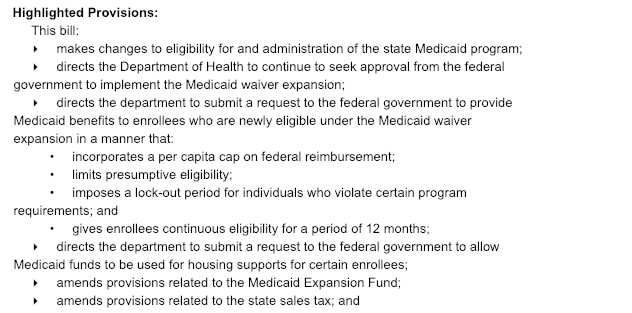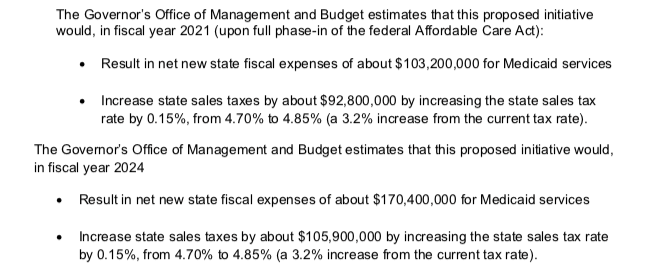The Utah state legislature returns to work on Monday and GOP lawmakers are already proposing multiple bills that hobble a successful ballot measure to expand health care to more low-income residents.
Utah State Sen. Allen Christensen’s (R) bill would prevent the ballot initiative — “Proposition 3,” which was approved in November and allowed for a clean Medicaid expansion — from going into effect. It would do so if the federal government approves a waiver submitted by the state in July to impose a per capita cap on federal reimbursement for more enrollment restrictions:

Politico reported early this month that the Trump administration is currently exploring whether it can allow states to implement Medicaid block grants, a policy sought by conservatives to attempt to limit spending. When ThinkProgress asked Utah Gov. Gary Herbert (R) if he’s interested in the idea, his office replied, “Governor Herbert supports meaningful changes to Medicaid that bring the program into alignment with state demographics and budget constraints.”
Christensen’s bill would also condition eligibility on reported work. He said it would mirror the state’s work requirement for food assistance, calling it “a pretty weak requirement” and beneficiaries would just need to “think about going to work and you’ve accomplished it.”
“We are going to implement the expansion and we are going to do it in a financially responsible way,” said Christensen, by phone.
Meanwhile, State Sen. Jacob Anderegg’s (R) bill overtly repeals the ballot measure. This legislation also repeals a partial Medicaid expansion measure that was approved by lawmakers last year but was later discarded when voters demanded full expansion.
“I’ve done a fairly extensive head count and think that there are enough votes in the House and the Senate to pass it,” Anderegg told the Salt Lake Tribune.
“The first few pages of this new bill show that Senator Christensen’s plan strikes out huge swaths of Prop 3,” said Utah Health Policy Project Executive Director Matt Slonaker, in a statement. “This plan adds provisions that would indefinitely delay enrollment and risk legal challenge.”
“Utah voters are smart, they are informed, and they chose to support full Medicaid expansion without caps, red tape, or delays. These bills that would repeal Proposition 3 are harmful to Utahns and run contrary to the will of the people,” Slonaker added.
In November, Utah residents approved Prop 3 to implement the Affordable Care Act’s Medicaid expansion by April, extending health insurance to over 150,000 people who earn no more than 138 percent of the federal poverty level or just under $35,000 for a family of four. Medicaid expansion received bipartisan support, with the ballot winning in 59 percent of House and Senate districts, including Christensen’s, but not Anderegg’s.
Medicaid expansion funding primarily comes from the federal government, which pays the bulk share, at 93 percent of the associated costs in 2019 and 90 percent in 2020 thereafter. States pay for their portion in various ways, but Utah voted to cover more residents by increasing the state’s sales tax on non-food items by 0.15 percentage points (from 4.7 percent to 4.85 percent).
Earlier analysis from the governor’s office and the state legislature found that the revenue from the increase to the state sales tax rate would cover the state’s share. But a January 2019 memo circulating from Governor’s Office of Management and Budget said there’s a shortfall:

“It’s been one excuse after another for those who do not want to expand the Medicaid program,” said Joan Alker, the executive director of Georgetown’s Center for Children and Families.
“It still remains the best investment a state can make. What other program can a state put up one dollar and get nine dollars back from the federal government? If you can make that kind of investment in your personal life, would you take it? I think you would,” she added.
Furthermore, various studies show increased state savings, as more people gain insurance and utilize preventative care services instead of the emergency room.
Opponents of Medicaid expansion by ballot tried to block the policy in various ways. In Montana, Big Tobacco invested an unprecedented amount of money into defeating the referendum and, in Nebraska, lawmakers tried to block the ballot by suing. It took a new governor in Maine to finally expand Medicaid a year after voters approved it by ballot.
